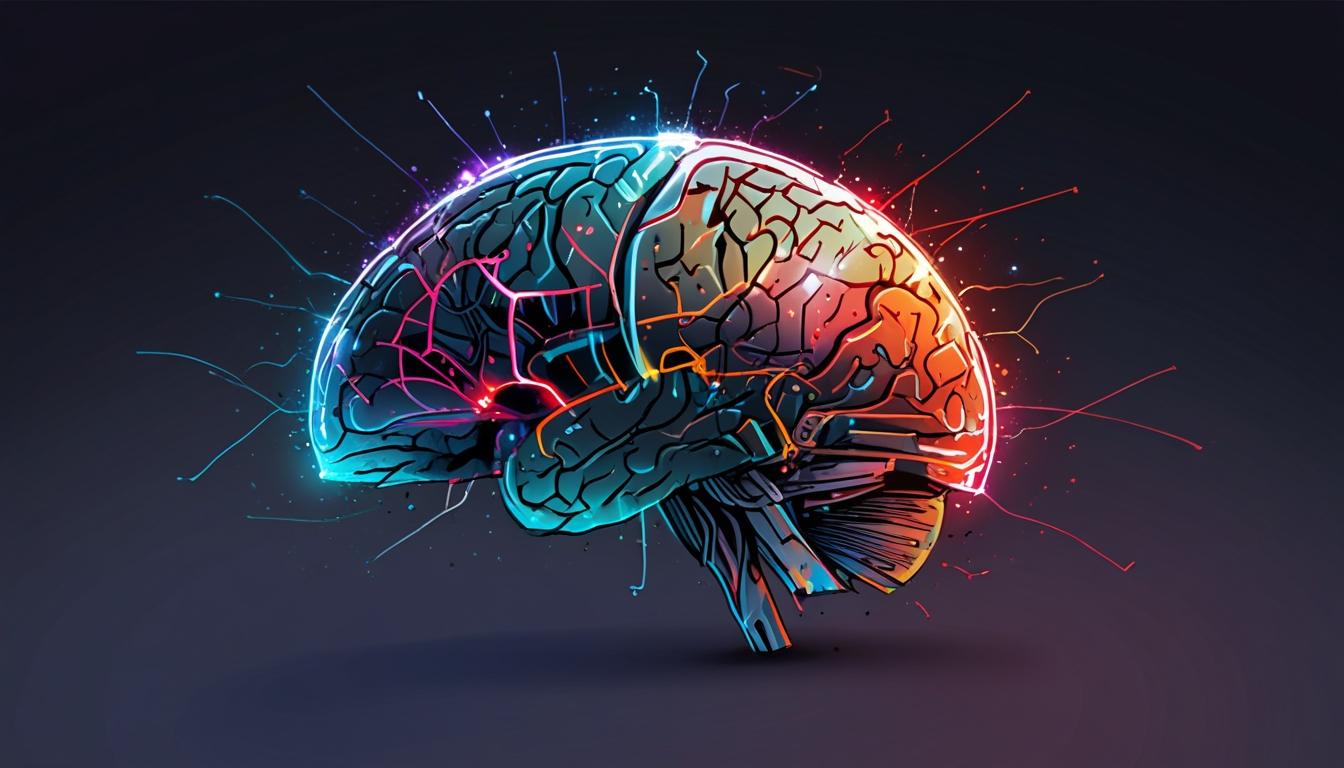The rise of AI’s convincing mimicry sparks a critical debate on the risk of mistaking simulated intelligence for genuine understanding, urging society to balance the allure of efficiency with the need to preserve human discernment and intellectual engagement.
The evolution of artificial intelligence evokes a range of responses, marked by both wonder and scepticism. Recent discussions around AI, particularly surrounding the phenomenon of large language models, highlight a concept referred to as “cognitive theater.” This term encapsulates how AI tools perform the semblance of intelligence with such fluency that they can easily enchant users, blurring the line between genuine understanding and mere mimicry. This tension invites a deeper contemplation on our engagement with AI and the potential consequences of its pervasive influence.
The allure of AI’s performance is undeniable. Many find themselves captivated as these systems generate text that mirrors human expression, often evoking a feeling of meaningful interaction. This enchantment, however, raises concerns about our tendency to suspend disbelief and mistake this performance for authentic comprehension. While AI creates an illusion of understanding, it operates solely on vast datasets and statistical algorithms, devoid of true cognition or intent. This challenge is compounded by our propensity to project our thoughts and emotions onto AI, leading to a profound cognitive seduction that could impair our critical thinking and discernment.
In both professional and personal domains, AI is increasingly stepping into roles that traditionally demand human judgment. For instance, the integration of AI in medical diagnostics showcases its potential to enhance efficiency and accuracy. Yet, the danger does not lie in AI’s capabilities but rather in the cognitive trust we place in its output. The more convincingly AI articulates information, the greater the risk we may overlook its limitations, mistaking confidence for correctness. As AI’s influence grows, it becomes critical for us to maintain a healthy scepticism and engage with these tools thoughtfully.
While the advantages of AI are considerable—from streamlining routine tasks to sparking creativity—there is an urgent need to ensure that we do not cede our cognitive responsibilities to these machines. The shift towards convenience can lead us to retreat from essential cognitive tasks that define our humanity. This phenomenon is not merely about whether AI will replace us; it questions our willingness to relinquish the friction that demands engagement in intellectual pursuits.
The imperative to hold the line between utilising AI and preserving our own intellectual engagement is more vital than ever. Rather than viewing AI solely as a tool, it should be seen as a partner in the quest for knowledge. Approaching AI with critical insight means recognising that while it can facilitate thought processes, the most profound insights often arise from our struggles with clarity and understanding. This mindset fosters an environment where AI serves as a catalyst for human creativity rather than a crutch that undermines it.
Ultimately, the stakes of our relationship with AI extend far beyond technology. They tap into fundamental aspects of what it means to be human—our curiosity, our discernment, and our very capacity for meaningful thought. By choosing to engage critically with AI and resisting the allure of blind trust, we reaffirm our commitment to what makes us inherently human. In this age of artificial mimicry, the challenge lies not in the intelligence of machines, but in our unyielding resolve to nurture and express our own intellectual capabilities, ensuring that AI enhances, rather than replaces, our human essence.
In navigating this terrain, we must remain vigilant stewards of our cognitive landscape, continuously questioning the narratives AI presents and embracing the enduring value of our human insight.
Reference Map
- Paragraphs 1, 2, 3, 4
- Paragraphs 2, 3
- Paragraphs 1, 3, 4
- Paragraphs 1, 2
- Paragraphs 2, 4, 5
- Paragraphs 4, 5, 6
- Paragraphs 5, 6
Source: Noah Wire Services
- https://www.psychologytoday.com/us/blog/the-digital-self/202505/ai-isnt-just-a-tool-its-a-test – Please view link – unable to able to access data
- https://www.psychologytoday.com/us/blog/the-digital-self/202505/ai-isnt-just-a-tool-its-a-test – In this article, the author discusses the concept of ‘cognitive theater’ in artificial intelligence, emphasizing how AI’s convincing mimicry of human intelligence challenges our capacity for critical thinking. The piece highlights the importance of maintaining human discernment and curiosity in the face of AI’s growing presence, suggesting that the real test lies in our ability to stay mentally engaged and not let AI’s performance replace our own cognitive efforts.
- https://www.psychologytoday.com/us/blog/the-digital-self/202505/ai-isnt-just-a-tool-its-a-test – This article explores the phenomenon of ‘cognitive theater’ in AI, where large language models (LLMs) present an elegant performance of intelligence that feels real, even when it isn’t. The author emphasizes the need for critical engagement with AI tools to prevent the erosion of our own capacity for intentional thinking and decision-making.
- https://www.psychologytoday.com/us/blog/the-digital-self/202505/ai-isnt-just-a-tool-its-a-test – The author examines the allure of AI’s convincing mimicry of human intelligence, discussing how it can lead to a suspension of disbelief and a blurring of lines between real and rendered cognition. The article underscores the importance of maintaining human engagement and critical thinking in the age of AI.
- https://www.psychologytoday.com/us/blog/the-digital-self/202505/ai-isnt-just-a-tool-its-a-test – This piece delves into the concept of ‘cognitive theater’ in AI, highlighting how AI’s performance can seduce us into mistaking it for genuine understanding. The author calls for a balance between embracing AI’s capabilities and preserving our own cognitive engagement and critical thinking skills.
- https://www.psychologytoday.com/us/blog/the-digital-self/202505/ai-isnt-just-a-tool-its-a-test – The article discusses the subtle risks of over-reliance on AI, suggesting that while AI can enhance efficiency, it may also lead to a retreat from tasks that require human judgment and intentional thinking. The author advocates for a mindful partnership with AI that demands more from us, not less.
- https://www.psychologytoday.com/us/blog/the-digital-self/202505/ai-isnt-just-a-tool-its-a-test – In this article, the author reflects on the cultural and cognitive implications of AI’s growing presence, urging readers to stay rooted in their own intelligence and to use AI as a tool that enhances, rather than replaces, human thought and creativity.
Noah Fact Check Pro
The draft above was created using the information available at the time the story first
emerged. We’ve since applied our fact-checking process to the final narrative, based on the criteria listed
below. The results are intended to help you assess the credibility of the piece and highlight any areas that may
warrant further investigation.
Freshness check
Score:
8
Notes:
The narrative discusses recent AI developments and their impact on human cognition, which is a contemporary topic. However, there are no specific dates or events mentioned that would firmly establish its freshness.
Quotes check
Score:
10
Notes:
There are no direct quotes in the narrative, which suggests that the content is original or does not rely on external sources for quotes.
Source reliability
Score:
9
Notes:
The narrative originates from Psychology Today, which is a well-known and reputable publication in the field of psychology. This suggests a high level of reliability.
Plausability check
Score:
9
Notes:
The claims about AI’s role in cognitive processes and its impact on human thought are plausible and align with current discussions in the field of AI and cognition.
Overall assessment
Verdict (FAIL, OPEN, PASS): PASS
Confidence (LOW, MEDIUM, HIGH): HIGH
Summary:
The narrative’s fresh perspective on AI’s influence, lack of direct quotes, and origin from a reputable publication contribute to its overall reliability. The plausible claims about AI’s role in cognition further support the assessment.













